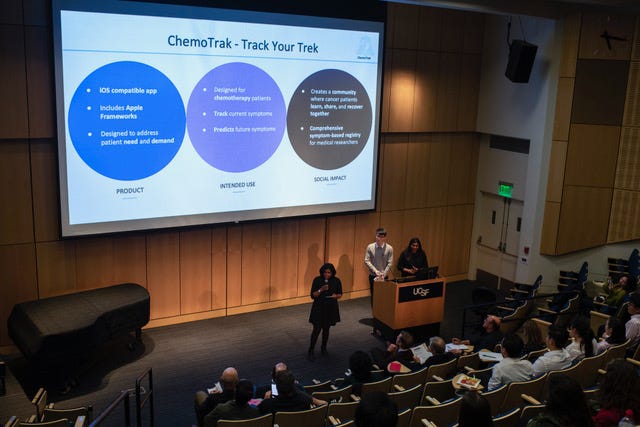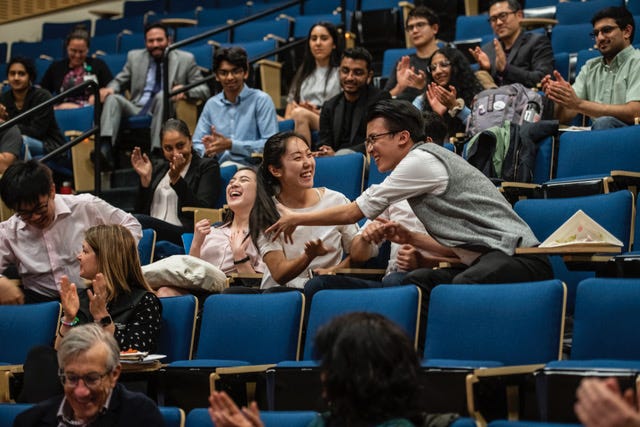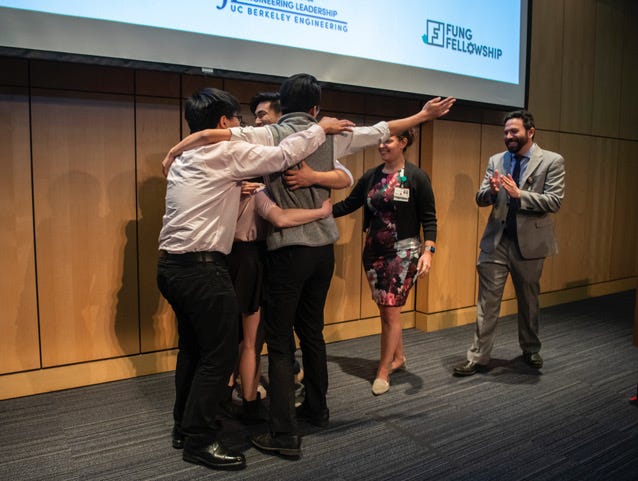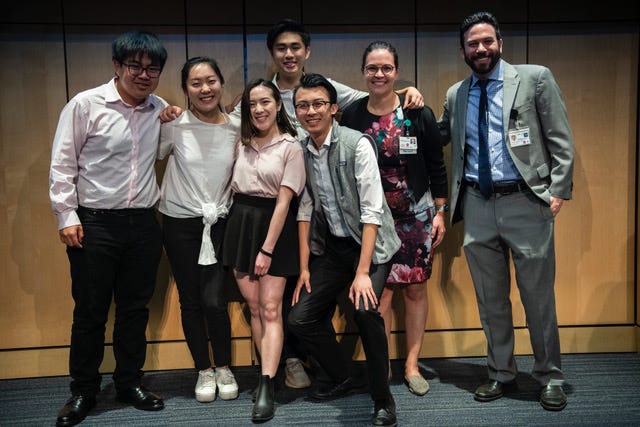By Lauren Leung




1st place: iHIT
The first place team developed an app called “iHIT,” which stands for “iPhone Head Impulse Test.” This app replaces the expensive medical testing equipment (approximately $25,000 per unit) that is currently used to detect potential deficits in a patient’s vestibular system through eye-tracking. The app tracks the location of a patient’s pupils and records that movement immediately into a plotted graph for the clinicians to analyze. This app will increase the accessibility of testing for balance-related vestibular issues, help clinics save money by not having to purchase expensive equipment, and simplify the user flow for the clinician, making rapid and accurate interpretation easy.2nd place: RetainerByte
The second-place team developed an app called “RetainerByte,” which connects to a novel Bluetooth-embedded retainer and tracks usage of the retainer. This app would allow orthodontists to monitor patients’ use of retainers and to communicate directly with them. This could greatly increase compliance and overall dental health in patients.3rd place: Pancreatitis Assistant
The third-place team developed an app called “Pancreatitis Assistant” that provides parents of children suffering from pancreatitis a one-stop resource for reliable information about the disease, improving their health literacy and leading to better care for their children. “Most hackathons are a one or two day sprint–it’s fast, teams build things quickly, but teams don’t have time to think deeply about the problem space and iterate, said Grace Lam, a member of iHit and a freshman student studying Electrical Engineering & Computer Sciences and business administration. “iHackHealth was different because we worked for three weeks with team members and mentors, and we had time to research the area, understand the issue we are solving, and collaborate effectively to reach the end goal. It’s been a meaningful journey and I’m excited to make our product a reality.” Grace’s teammates, sophomore Andrew Che and senior Alex Li were in agreement about the value of working with a diverse team. “It was amazing to see how through the collaboration of different fields we were able to quickly contribute to both in a meaningful way,”said Andrew. Alex added, “With such a diverse team in terms of majors and skillsets, it felt so fulfilling to build and work on an application with such a direct purpose and impact on our community.” “The prototypes that the teams were able to put together at the end of the short competition were really incredible,” said Derek. “I cannot wait to see what the teams will create in future iterations of the competition.” Julie added, “I am always amazed by the impact UC Berkeley students are able to create in such a short amount of time!”“With such a diverse team in terms of majors and skillsets, it felt so fulfilling to build and work on an application with such a direct purpose and impact on our community.”
About iHackHealth
UCSF practitioners proposed mobile app ideas to improve research, clinical practice, patient care and education, and overall community health. UC Berkeley students (both undergraduate and graduate) worked in interdisciplinary teams to develop these mobile apps as iOS prototypes together with support from these medical professionals.iHackHealth: UC Berkeley and UCSF hold inaugural cross-bay appathon event was originally published in Berkeley Master of Engineering on Medium, where people are continuing the conversation by highlighting and responding to this story.

